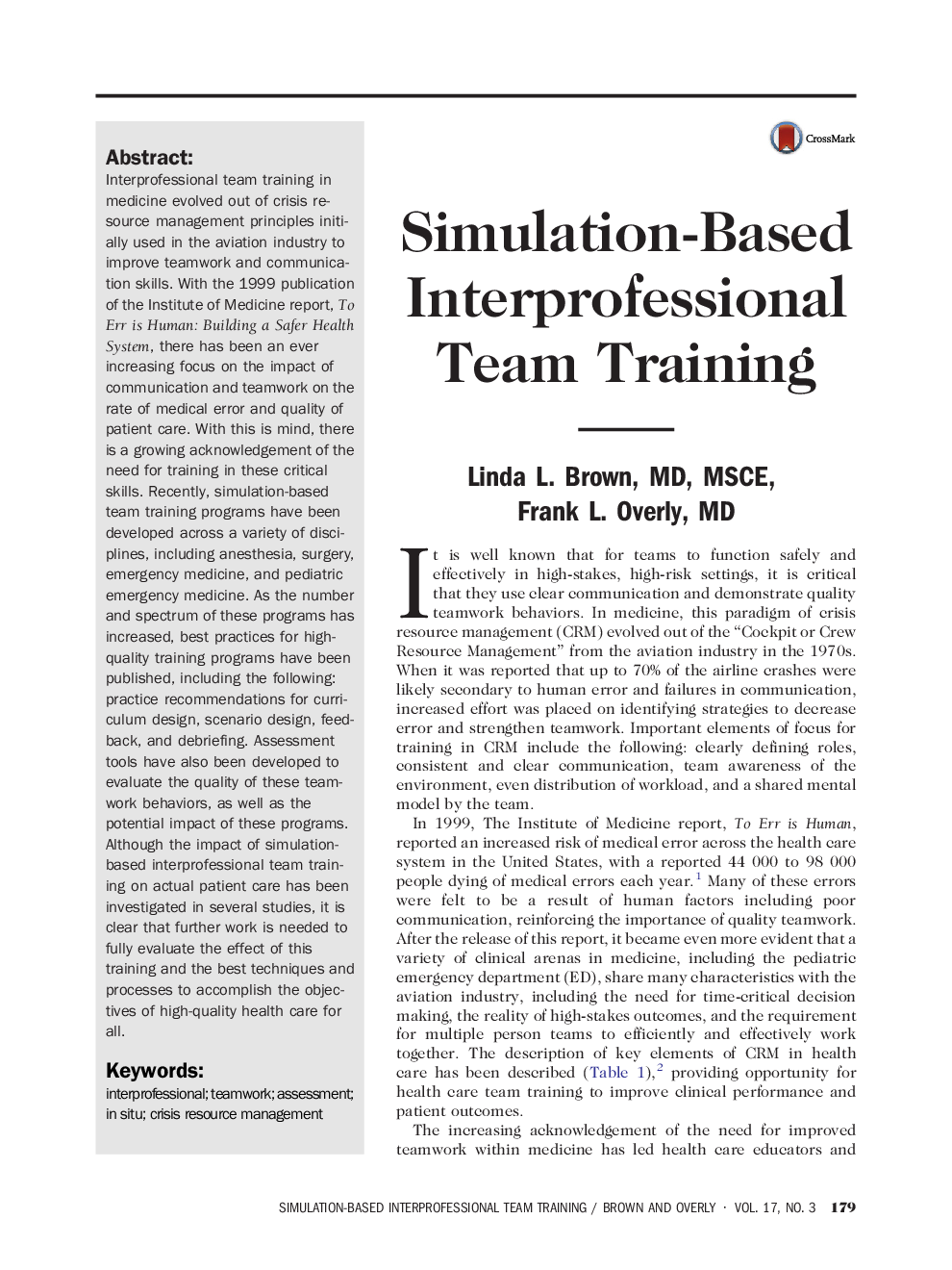| Article ID | Journal | Published Year | Pages | File Type |
|---|---|---|---|---|
| 3235707 | Clinical Pediatric Emergency Medicine | 2016 | 6 Pages |
Interprofessional team training in medicine evolved out of crisis resource management principles initially used in the aviation industry to improve teamwork and communication skills. With the 1999 publication of the Institute of Medicine report, To Err is Human: Building a Safer Health System, there has been an ever increasing focus on the impact of communication and teamwork on the rate of medical error and quality of patient care. With this is mind, there is a growing acknowledgement of the need for training in these critical skills. Recently, simulation-based team training programs have been developed across a variety of disciplines, including anesthesia, surgery, emergency medicine, and pediatric emergency medicine. As the number and spectrum of these programs has increased, best practices for high-quality training programs have been published, including the following: practice recommendations for curriculum design, scenario design, feedback, and debriefing. Assessment tools have also been developed to evaluate the quality of these teamwork behaviors, as well as the potential impact of these programs. Although the impact of simulation-based interprofessional team training on actual patient care has been investigated in several studies, it is clear that further work is needed to fully evaluate the effect of this training and the best techniques and processes to accomplish the objectives of high-quality health care for all.
